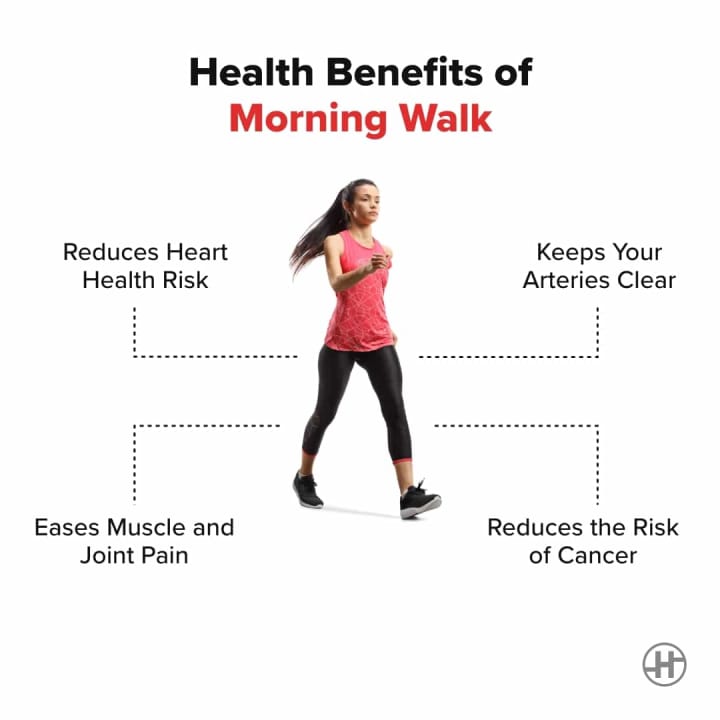Strolling 4,000 stages day to day is the new marvel drug: Study shows you can diminish chance of kicking the bucket from all causes
Among the more youthful age bunch, the greatest wellbeing improvement was found in the people who strolled somewhere in the range of 7,000 and 13,000 day to day ventures, while for those matured 60 years and over, it was somewhere in the range of 6,000 and 10,000 stages.

On the off chance that you walk only 1.5 to 2 km for around 15 to 20 minutes regular, or 4,000 stages every day, in any setting, you might decrease your gamble of passing on from any reason. Furthermore, regardless of whether you figure out how to walk somewhat more than half of that, you can diminish your gamble of kicking the bucket from cardiovascular illnesses. These are the discoveries of a review, the biggest till date and distributed in the European Diary of Preventive Cardiology.
The exploration, directed by Maciej Banach, a teacher of cardiology at the Clinical College of Lodz in Poland, is huge on the grounds that he gathered information of 226,889 individuals, who were followed for a normal of seven years to survey the wellbeing effects of various everyday step counts. Says Dr Ranjan Shetty, HOD and Specialist, Interventional Cardiology, Manipal Clinic, Bengaluru, "What this study does is lay out the way that the main move you make from zero action has the most extreme advantage and that it is feasible. Assuming we partition your activity or actual work design from zero to ten, then recollect that zero to one has the most extreme advantage than one to 10. Obviously there are steady advantages, with the review showing that an increment of 1,000 stages a day was related with a 15 percent risk decrease in all-cause mortality and an increment of 500 stages a day was related with a seven percent risk decrease in cardiovascular illness. However, in the event that you focus on the main degree of movement and stick with it everyday on the grounds that it is possible, then it sets you on a course revision. Concentrates on strolling are numerous however this one, interestingly, sets a medicine portion for way of life revision like a specialist accomplishes for some other pill. It says practice is likewise a tablet to be had with anything that drugs you have for your state of being. So this study has an impact on the viewpoint of what you really want to do."

This study works best as a proposal for the Indian populace, feels Dr Abhishek Srivastava, Chief, Community for Actual Medication and Restoration, Kokilaben Emergency clinic, Mumbai. "Most Indians, hereditarily and truly, no longer have anything to do with outrageous actual activities. Extensively, 5,000 stages everyday work for them. Many individuals even count their minutes, normally running somewhere in the range of 35 and 45 minutes. Be that as it may, by focussing on step counts, which you can screen on your shrewd watches, you can walk the border of your home in the event that you can't step outside. This way it explains the distinction between actual work (strolling, family tasks) and exercise (which individuals partner with a rec center). Additionally the suggestion that assuming you increment your means by 1,000, you have 15% additional security, is new and was not shown by before studies," he says.
With inactive way of life arising to be another co-dismalness trigger, Dr Shetty feels that this study tells us to "follow through with something" rather than "sit idle." The idea of day to day wellness and strolling as a vital part of physiology has made progress since a UK investigation discovered that the transport driver had a higher opportunity of a cardiovascular failure since he is fixed for longer hours than a guide who moves around. "Without active work and in a tranquil express, your body digestion dials back, which permits unsaturated fats to develop in veins. Did you had at least some idea that lipoprotein lipase, the compound that separates fat in your blood, comes around 90% when you lounge around day in and day out? So your fat simply continues getting put away, prompting stoutness. You foster insulin obstruction, which can cause Type 2 diabetes. Your bones debilitate, body irritation goes up and these taken together increment your gamble of coronary illness. The blood stream to the mind dials back as well. Any activity helps battle the impacts of the pressure chemical cortisol," he says,
He has obviously seen four advantages in his patients with simply a 15 to 20-minute walk. "The BP will in general descend by 5mmHg, both systolic and diastolic. Your glucose and HbA1c (normal glucose) levels descend, you look more youthful and forestall maturing and could split your gamble of malignant growth," Dr Shetty adds.
Among the more youthful age bunch, the greatest wellbeing improvement was found in the people who strolled somewhere in the range of 7,000 and 13,000 everyday strides, while for those matured 60 years and over, it was somewhere in the range of 6,000 and 10,000 stages. The group even surveyed the effect of approaching 20,000 stages per day, for the individuals who needed to be outrageous, and found that the medical advantages kept on expanding.
"Strolling is a basic yet significant activity. This study attracts an unmistakable guide to better wellbeing through day to day step counts that don't appear to be hard to accomplish. What separates these discoveries is the all inclusiveness of advantages across orientation, age and environment. Surprisingly, in any event, approaching 20,000 stages or around 10 miles heightens wellbeing gains without reducing impacts," says Vijay Thakkar, utilitarian medication master. "In a world driven by cutting edge clinical mediations, this examination highlights that way of life changes like strolling could be our most strong 'wonder drug.' In the midst of a pandemic that has prompted a decrease in worldwide actual work, this fills in as an opportune update that the pathway to wellbeing could lie in placing one step at a time. As I frequently stress in my training, customized way of life changes are correlative to clinical medicines as well as are the actual treatment," he adds.

Nonetheless, all specialists feel that huge scope studies are expected to examine assuming that these advantages might exist for thorough exercises, for example, long distance race running for different populaces of different ages and with shifted prior medical issue.






Comments
There are no comments for this story
Be the first to respond and start the conversation.